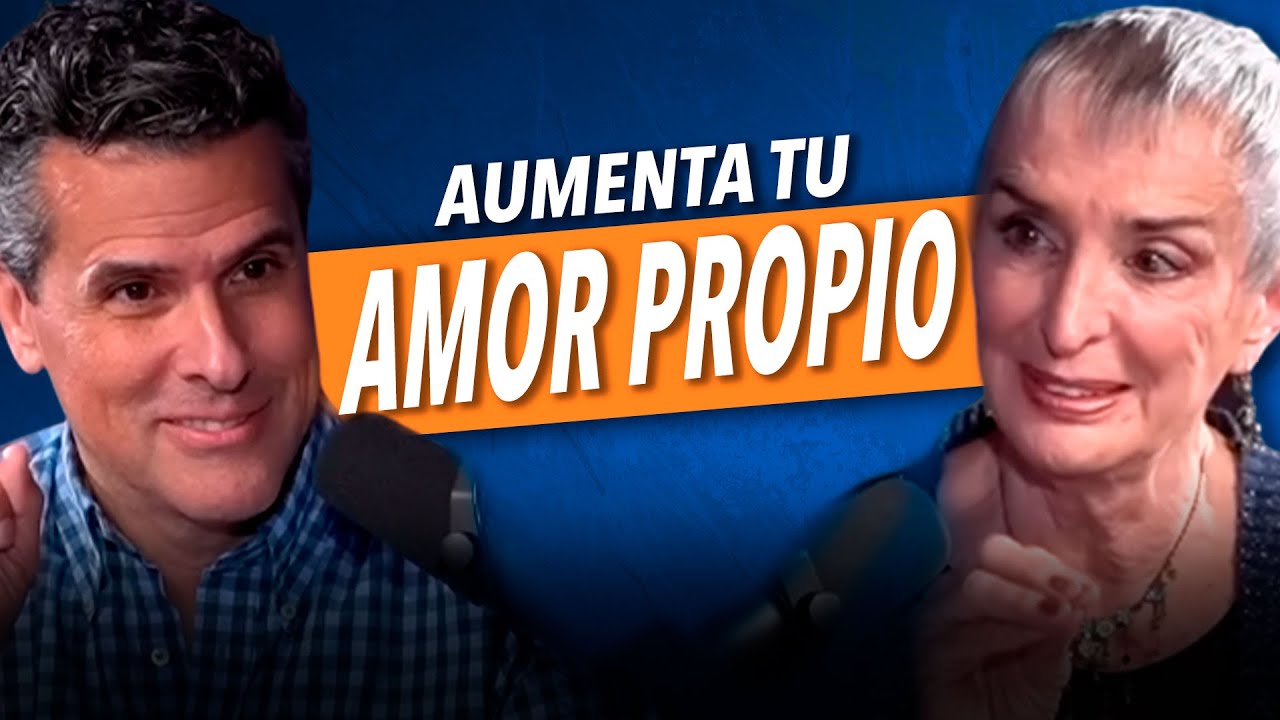Dependencia emocional en la pareja | Silvia Congost | TEDxReus
Summary
TLDREn este conmovedor relato, Silvia Congost, psicóloga especializada en autoestima y dependencia emocional, comparte su experiencia personal y profesional sobre las relaciones tóxicas. A través de la historia de Cristina, una paciente atrapada en una relación dañina, Silvia reflexiona sobre su propio proceso de autodescubrimiento. Explica los tres tipos de relaciones: saludables, tóxicas y las que se vuelven tóxicas con el tiempo. Además, presenta los pasos clave para superar la dependencia emocional: comprensión, aceptación, mejorar la autoestima y mirar hacia adelante con gratitud y fuerza renovada.
Takeaways
- 😊 Silvia Congost es una psicóloga especializada en autoestima, dependencia emocional y relaciones.
- 😢 Cristina, una paciente de 36 años, sufría de ansiedad, insomnio y problemas de salud debido a una relación tóxica.
- ❤️ Cristina no dejaba la relación por dos razones: porque amaba a su pareja y por miedo a estar sola.
- 🤯 Silvia se dio cuenta de que también había estado atrapada en una relación infeliz durante seis años.
- 🌱 Existen tres tipos de relaciones: saludables, relaciones que se vuelven tóxicas con el tiempo, y relaciones tóxicas desde el inicio.
- ⚠️ La dependencia emocional es una forma de adicción que impide que una persona deje una relación dañina.
- 🔍 Los síntomas de la dependencia emocional incluyen obsesión, agotamiento mental, y malestar general.
- 💡 Para superar la dependencia emocional, Silvia identifica cuatro pasos: comprensión, aceptación, mejorar la autoestima y gratitud.
- 🌸 La autoestima se ve dañada en relaciones tóxicas y necesita ser fortalecida para recuperar el bienestar emocional.
- 🎉 Finalmente, después de superar la dependencia emocional, es importante mirar hacia el futuro con optimismo y convicción.
Q & A
¿Cuál fue el detonante que llevó a Silvia Congost a darse cuenta de su propia situación en una relación tóxica?
-El detonante fue una sesión con una paciente llamada Cristina, quien describía síntomas de ansiedad, insomnio y otros problemas causados por su relación. Al escucharla, Silvia se dio cuenta de que estaba viviendo una situación similar y había estado atrapada en una relación infeliz durante más de seis años.
¿Cuáles son las tres categorías de relaciones que Silvia Congost identifica en su práctica?
-Silvia identifica tres tipos de relaciones: las relaciones saludables, las relaciones que se vuelven tóxicas con el tiempo y las relaciones tóxicas desde el principio.
¿Qué características definen una relación saludable según Silvia Congost?
-Una relación saludable es aquella en la que las dos personas comparten valores, tienen un plan de vida común, y se apoyan mutuamente para crecer. Aunque pueden haber conflictos, estos se resuelven de manera constructiva.
¿Por qué algunas relaciones que comienzan siendo saludables pueden volverse tóxicas con el tiempo?
-Las relaciones pueden volverse tóxicas si una de las personas cambia, si ocurre una experiencia traumática o si los valores de una de las personas cambian. Esto puede generar una desconexión emocional, pérdida de admiración, o incluso infidelidad.
¿Qué síntomas experimentan las personas atrapadas en relaciones tóxicas según el testimonio de Silvia?
-Las personas en relaciones tóxicas pueden sufrir ansiedad, insomnio, aumento de peso, dificultades para concentrarse, pérdida de memoria, y en casos extremos, pensamientos suicidas.
¿Qué es la dependencia emocional y cómo afecta a las personas en relaciones tóxicas?
-La dependencia emocional es una adicción hacia una persona que impide que alguien termine una relación tóxica, a pesar de que sabe que no es saludable. Las personas dependientes temen estar solas y sienten pánico ante la idea de perder a su pareja.
¿Por qué es tan difícil para las personas dejar una relación tóxica?
-Es difícil debido a la dependencia emocional, que genera miedo a la soledad y la incapacidad de imaginar una vida sin la pareja, incluso si la relación es destructiva.
¿Cuáles son los cuatro pasos que Silvia Congost propone para superar la dependencia emocional?
-Los cuatro pasos son: 1) Entender lo que es la dependencia emocional, 2) Aceptar la situación sin culparse, 3) Reforzar la autoestima, y 4) Agradecer la experiencia y mirar hacia el futuro con una mentalidad positiva.
¿Cómo describe Silvia Congost el proceso de reforzar la autoestima tras salir de una relación tóxica?
-Reforzar la autoestima implica recuperar el sentido de valor personal y la capacidad de sentirse digno. Esto es crucial después de haber sufrido intentos fallidos de hacer funcionar la relación, lo que puede llevar a creencias negativas sobre uno mismo.
¿Qué impacto tienen las relaciones tóxicas en otras áreas de la vida de una persona?
-Las relaciones tóxicas afectan todas las áreas de la vida, incluyendo el trabajo, las amistades y la autoestima. El desgaste emocional de intentar hacer que la relación funcione puede agotar el cerebro, afectando la capacidad de concentración y el bienestar general.
Outlines

このセクションは有料ユーザー限定です。 アクセスするには、アップグレードをお願いします。
今すぐアップグレードMindmap

このセクションは有料ユーザー限定です。 アクセスするには、アップグレードをお願いします。
今すぐアップグレードKeywords

このセクションは有料ユーザー限定です。 アクセスするには、アップグレードをお願いします。
今すぐアップグレードHighlights

このセクションは有料ユーザー限定です。 アクセスするには、アップグレードをお願いします。
今すぐアップグレードTranscripts

このセクションは有料ユーザー限定です。 アクセスするには、アップグレードをお願いします。
今すぐアップグレード関連動画をさらに表示

AMOR PROPIO y AUTOESTIMA ¿Cómo aumentarlos? - Nilda Chiaraviglio y Marco Antonio Regil

Our Psychology Teacher

EL PODER DEL CONTROL EMOCIONAL!

El vídeo más impactante sobre el maltrato psicológico | Silvia Congost

EL VIAJE DE CHIHIRO: ANÁLISIS de su SIGNIFICADO

¿Cómo hago mi proyecto de vida? ¿Lo necesito? Con Gaby Pérez Islas | Martha Debayle
5.0 / 5 (0 votes)
